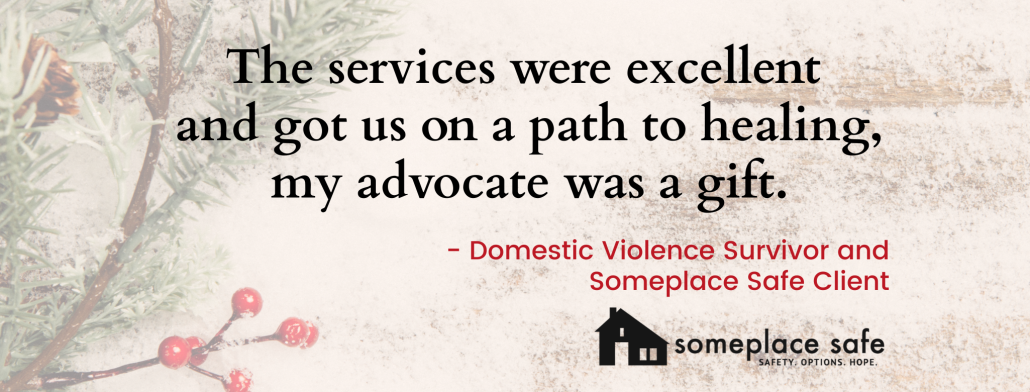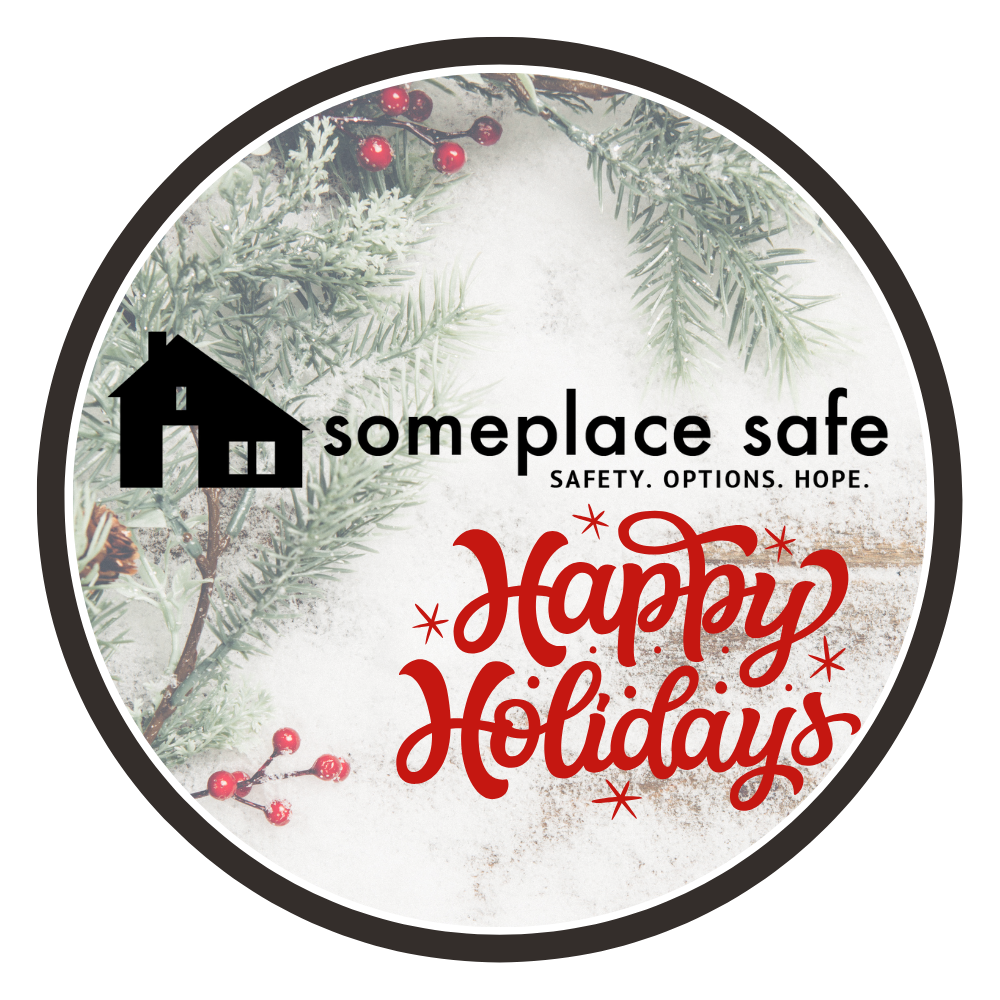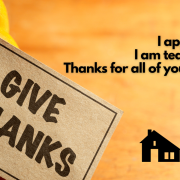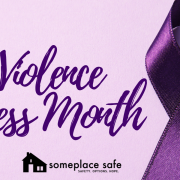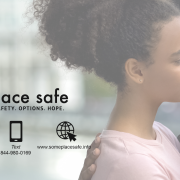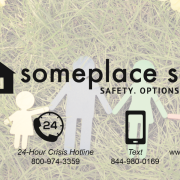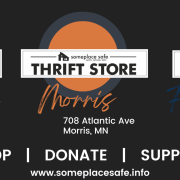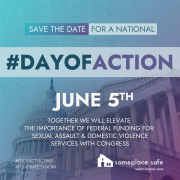During this season of thanksgiving, we pause to reflect on the many ways your support has allowed us to continue providing safety, options and hope for those in need. We give thanks for the courage of survivors, the compassion of our supporters, and the strength of our community. Every act of kindness, every donation, every volunteer hour, every shared word of encouragement — helps build strength and healing.
Like many nonprofits, Someplace Safe is navigating uncertain times, with higher costs, growing community needs, and uncertain funding levels. But our agency remains committed, as the demand for Someplace Safe services has increased significantly this past year. Take a look:
- 27% increase in the amount of survivors accessing emergency housing
- 24% increase in the length of stay for survivors living in emergency housing
- 17% increase in the amount of meals provided to survivors and their families
- 12% increase in the amount of after-hours client crisis calls
- 51% increase in survivors reaching out to the agency’s text line
- 53% increase in the amount of clothing, furniture and needed household items Someplace Safe Thrift Stores provided to local survivors of crime, free of charge
- 29% increase in the amount of clothing, furniture and needed household items Someplace Safe Thrift Stores provided to community members in need through local partner agencies (MNCEP, family services, etc.)
- 12% increase the amount of professional trainings Someplace Safe provided to law enforcement, family services and other professionals on topics such as Mandated Reporting, Safety and De-escalation, and others
- 21% increase in the amount of presentations the agency provided to community members and students on topics such as Healthy Relationships, Stalking, Sexual Exploitation and Trafficking, and others, with a 55% increase in audience attendance
As you can see, community needs are increasing. But with your continued support, we can help make sure that no victim of crime has to wait for help. In fact, we can continue to save lives!
We express our deepest appreciation for your unwavering support this past year and ask that you consider kicking off the holiday giving season by bringing safety, healing, and new beginnings to those who need it most. Please consider the giving options below or feel free to reach out with your thoughts and ideas of how you would like to help this holiday season.
For more information and ways to give, please visit someplacesafe.info/giving-opportunities/ or email ashley.z@someplacesafe.info
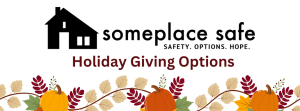
Donate Online
It’s easy to give an online donation or a sustained monthly, quarterly, or annual gift through our donation page at someplacesafe.info/donate/. You may designate your gift to a specific program or office or in memory of a loved one.
Mail or Drop Off
You may drop off or mail your gift to your local Someplace Safe office, or mail to: Someplace Safe, PO Box 815, Fergus Falls, MN 56538-0815. Please make your check payable to Someplace Safe. Gifts may be designated for a specific program/location or in memory of a loved one.
Items for Clients
Someplace Safe offices accept donations of new items for use by local victims and survivors. Items such as full-size personal care items, diapers, and quilts are always needed. Cell phones (in any condition) and cell phone chargers are also accepted. Gently used items can be accepted at Someplace Safe Thrift Stores, located in Alexandria, Fergus Falls and Morris, where the clients receive vouchers for needed items. The stores can accept your donations of gently used clothing, household items, toys, and more!
Holiday Presents
Giving a holiday present provides individuals the chance to receive a gift that you chose specially for them. Ideas for children and teens include: pajamas, board games, toys, gloves, puzzles, drawing tools, learning games, books, and gift cards.
Ideas for adults include: pajamas, socks, slippers, scarves, gloves, journals, lotions, manicure/grooming set, perfume/cologne, or gift cards to online retailers, local merchants, grocery stores or gas stations.
Adopt a Family
This is a great way to help families who are experiencing hardships or may be having a difficult time. Due to the nature of each families’ circumstances, you will be unable to drop off the items directly at their homes. If you, your family, your coworkers, congregation or group would like to adopt a family, please contact Someplace Safe for specific family information (sizes and other details) by emailing ashley.z@someplacesafe.info.
